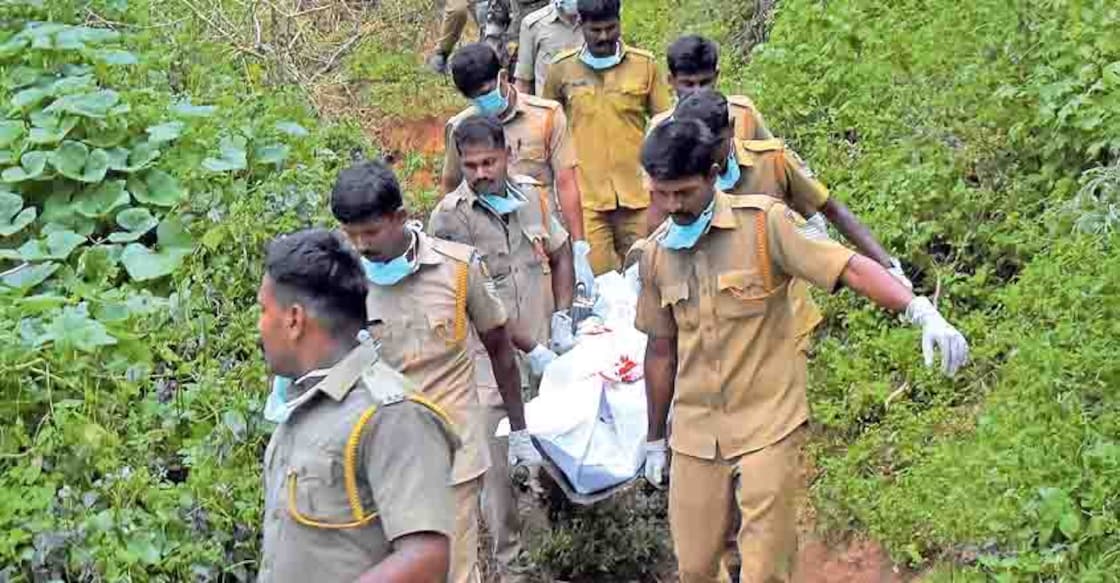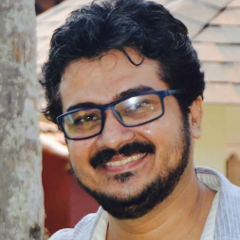How the Maoists created a wedge between Kerala's ruling communists

Mail This Article
The staunch criticism against the Maoist hunt at Manjikkandi in Attappadi from within the ruling Left Democratic Front and the government's attempts to justify the police action present a good opportunity to remind the CPM of a piece of advice it offered to the Congress-led Union government in 2009. The CPM warned the government against attempts to portray extreme left-wing violence merely as a gun battle and counselled the need for understanding the basic issues that fomented unrest and isolating the rebels from the people.
The words of wisdom ring true in Kerala in 2019. Ask the tribesmen to choose between the CPI(Maoist) members who have made a den out of the forests of Western Ghats and the Thunderbolt commandos formed by the state police to counter the armed guerrillas, and they would have no love lost for the commandos. In fact, even CPM's junior partner CPI wants the commandos out.
Yet, chief minister Pinarayi Vijayan seems to subscribe to the theory that extreme left-wing politics is just a law-and-order problem. Speaking in the Kerala Legislative Assembly, he put up a brave defence of the police action that led to three deaths with a cautionary statement that the Maoist menace was about to pervade Kerala.
Maoists in Kerala
The recent “encounters” in the Attappadi region in Palakkad district has brought back to the discussion table Kerala's bloodied tryst with left-wing extremism that progressed through the police station attacks at Thalasseri, Pulpalli and Kayanna. The “spring thunder” waned in Kerala after K Venu disbanded the CPI(ML) and K N Ramachandran formed the CPI (ML-Red Flag).
The movement lingered on through CPI (ML-Naxalbari) formed by Murali Kannampalli, which merged into the CPI (Maoist) in 2014. Kannampalli was later arrested in Maharashtra. So was another prominent leader, Roopesh.

Except for occasional flare-ups by Maoist associations such as 'Ayyankali Pada' and 'Porattam,' the “Naxalite” movement ceased to exist in the state. 'Porattam' activists did not even have the resources to bring out their mouthpiece regularly. The activists could not even mobilise resources to offer legal support to Kannampalli as he languished in a Pune jail for four years pending trial. He was eventually granted bail in July on a condition that he must produce himself before the Pune police twice a month.
Western Ghats heating up
The CPI (Maoist) strategy centred on operating on inter-state borders, slipping in and out of the states at will. The rebels found a natural habitat in the Western Ghats that separated Kerala from Tamil Nadu and Karnataka. They, however, made the forests a safe haven and desisted from striking at security forces as they did elsewhere. They were more interested in propaganda, the tribesmen in the area said.
The local people had nothing bad to say about the rebels when three fact-finding delegations – led by CPI's K Prakash Babu, Congress's V K Sreekandan and CMP's C P John, respectively – visited them after the “encounters.”
Yet, the chief minister sought to paint them in a bad light by pointing to their violent actions in other states. The organisation is supposed to have about 1 lakh guerrillas in its ranks. The present general secretary, Basava Raj from Sreekakulam in Andhra Pradesh, is a firm believer of drastic action.
Though the chief minister insisted that the police shot at the CPI(Maoist) members in self-defence, the CPI alleged that the “encounters” were staged to gun down the rebels. A probe by the police crime branch lends little credibility because the police are supervised by the chief minister who has strong views on the matter. A magisterial inquiry, on the other hand, plays into the hands of the CPI because the revenue minister is a party member. A magisterial inquiry is conducted by the district collector or a revenue divisional officer. Curiously, the chief secretary, their top boss in the bureaucracy, said that police firing was inevitable, even before the department-level investigation started.
That got the goat of CPI state secretary Kanam Rajendran for obvious reasons. Kanam has been a harsh critic of police high-handedness when it comes to left-wing guerrillas though he called the activists “misguided.”
The government was further pushed to a corner when the police arrested two youngsters in Kozhikode under the dreaded Unlawful Activities Prevention Act. Their crime: possession of seemingly secessionist literature. Why did the police take such an action? Did they want to paint a picture that the guerrillas had spread their tentacle even to the urban centres? The questions came pouring in, even from the politburo of the ruling party.
Strangely, the LDF government seems to defend its actions on the boogeyman in Delhi: the state government has a responsibility to answer to the Union home minister Amit Shah.


